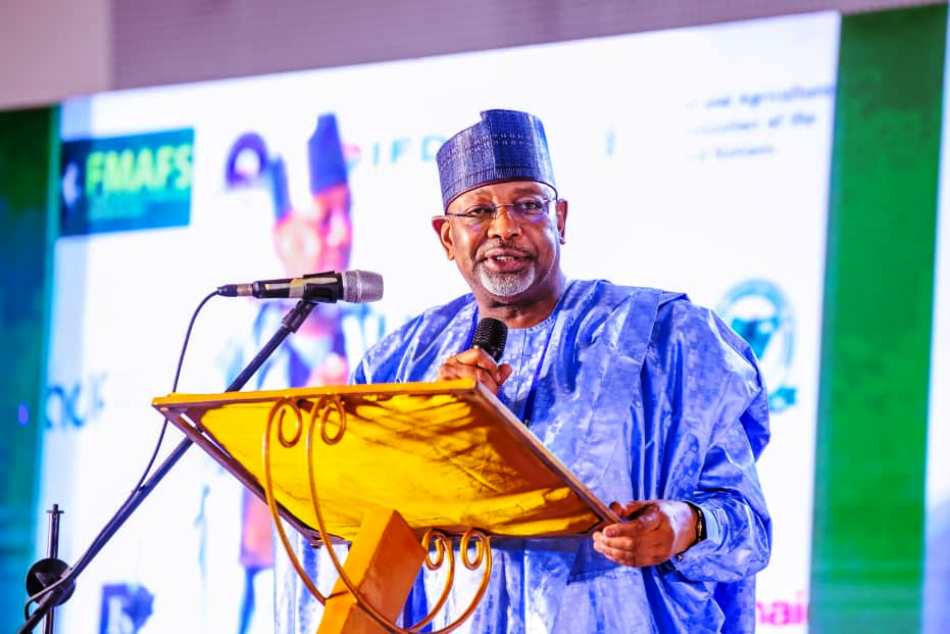Say borrowed policies can’t feed Nigerians
From Okwe Obi, Abuja
For decades, Nigeria’s agriculture sector has been poor in food production, making heavy reliance on importation to bridge the shortfall inevitable.
The crux of this challenge, stakeholders note, is foundational, as Nigeria keeps formulating and implementing obsolete policies and laws gleaned from different countries without clearly appreciating the peculiarities of those countries and determining whether they fit into the Nigerian narrative.
According to them, imported agric policies cannot feed Nigerians as they have, more often than not, been totally misaligned with Nigeria’s realities. This, they noted, explains why the frameworks are either abandoned or poorly implemented.
Nonetheless, as the federal government moves to reform Nigeria’s outdated agricultural laws, especially the Land Use Act, seed distribution and the importation of foodstuffs, experts and industry stakeholders have outlined key priorities aimed at fostering a more modern, productive and competitive sector.
They also noted that the political will to implement laws is very paramount as Nigeria parades a legion of policies that have remained unimplemented, yet beautiful on paper.
For example, the Agricultural Promotion Policy (APP) introduced for the 2016–2020 period, designed to revitalise the sector by boosting productivity, enhancing exports, and generating employment, fell short of its objectives, largely due to poor implementation. The policy’s shortcomings are evident today in the persistently high cost of living and limited progress in sectoral transformation.
Also, the National Agricultural Technology and Innovation Policy (NATIP) 2022-2027, which is built on the APP and is focused on value chain development, rural infrastructure and climate change adaptation.
Another policy is the Agricultural Transformation Agenda (ATA), the Growth Enhancement Support Scheme (GESS) the Anchor Borrowers’ Programme (ABP), the Youth Empowerment in Agriculture Programme (YEAP) and the Livelihood Improvement Family Enterprises (LIFE) Programme, have all yielded little or nothing.
Analysts insist the country suffers from policy overload and implementation deficit.
Recently, Minister of State for Agriculture and Food Security, Abdullahi Sabi, at a workshop, declared that there was a need for the country to inject fresh policies to boost food production.
He said: “The agriculture sector in Nigeria is undergoing dynamism through its diverse production systems, evolving extension services and response to climate change. The sector’s dynamism is evident in the shift from traditional farming practices to more modern techniques, diversification of crops and livestock and adaptation to changing weather patterns.
“Nigeria cannot grow its agricultural sector into an industrial phase without an effective legal framework. The purpose of this workshop is, therefore, to initiate the process of amending all relevant agricultural laws to make them more conducive to agricultural business growth.
“The review of the Nigerian Co-operative Societies Act is a priority, as it is intended to feature among the President’s mid-term achievements under his agricultural revamp and reform agenda.”
At the event, the Permanent Secretary of the Ministry, Marcus Ogunbiyi, stressed the need for land tenure clarity, financing, quality control of seeds and fertilizers, as well as food safety.
Ogunbiyi, also insisted on the inclusion of smallholder farmers, women and youth that must be engrafted into the country’s national agricultural policies and not to bring them as an after-thought.
A smallholder farmer, Musa Mohammed, tasked the government to allocate more lands to farmers, lamenting that in the FCT, for instance, most farmlands have been earmarked for estates and high rising buildings.
“They should look at the Land Use Act of 1978, which empowers governors to hold the land in trust. Such a law should be repealed to allow people to own land.
“There should be constitutional provisions for smallholder farmers in terms of farm inputs distribution.
Policies should be adapted to fit into the Nigerian narrative. We have our peculiar challenges and cut-and-paste policies won’t feed Nigerians” the ,” he said.
Also, Tene Akwashiki, another speaker, counseled the government on the agro ranchers, stating that it should be a serious policy reform.
Akwashiki said: “The agro ranchers are not working. Probably it is due to poor funding and other logistical requirements. Every day we hear of insecurity, herders and farmers conflicts. They should be empowered to protect farmers.
“Also, I will recommend for the government to train more extension workers to train more farmers on global best practices in food production and preservation and storage. This policy will really help in reshaping the sector.”
